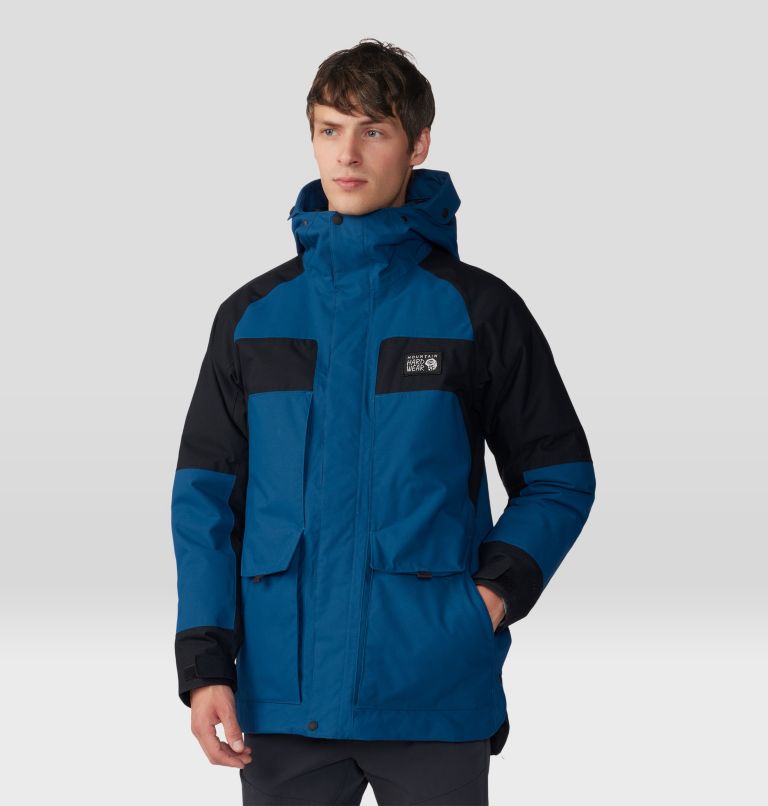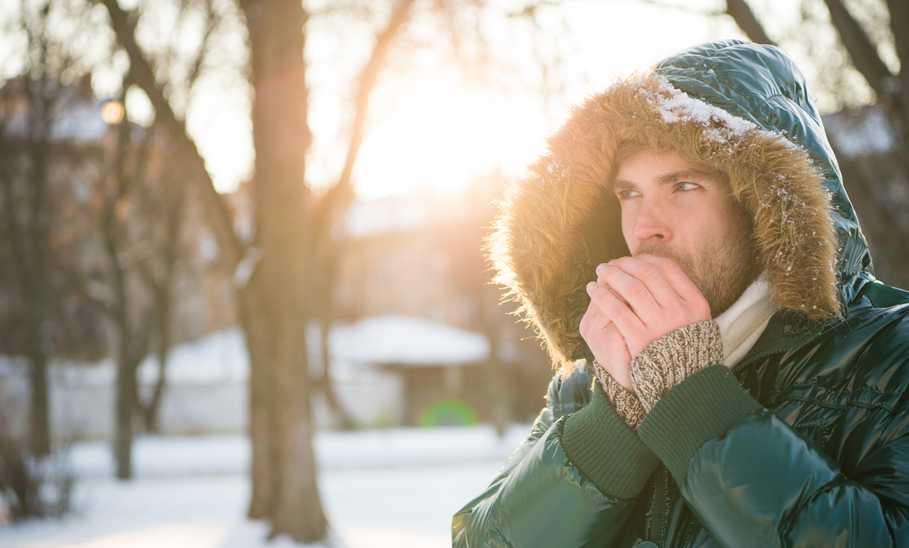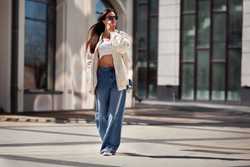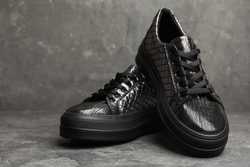updated: September 18, 2024
Ah, winter—it’s the season of festive fun, bright, sparkling, frosty mornings, and rosy-cheeked gatherings around the nearest fire. It’s also the season of freezing your extremities off, as icy winds blast down the back of your neck and frozen slush falls from the sky. Keep winter at bay this year with our picks for the best winter jackets for extreme cold.
Our top picks for the best winter jackets for extreme cold

Helly Hansen Alpha 4.0 Jacket
Budget is pretty subjective when it comes to winter jackets, as anything designed to keep the cold and wet out will almost certainly not come cheap. While not the least expensive coat on this list, in terms of feature-stuffed value for money, this one is a winner. “The Alpha 4.0 Jacket by Helly Hansen uses proprietary waterproofing and insulation to keep you warm and dry,” says Evans. “It's a great bang for your buck!” Helly Hansen also made our lists for the best fleece jackets for men and the best ski pants for men, in case you need to round out your winter outdoor wardrobe.
Specifications
- Sizes: S-2XL
- Colors: 7
- Material: Shell: 85% polyamide, 15% elastane; lining: 86% recycled polyester, 14% elastane
- Insulation materials: 100% recycled polyester
- Price at time of publish: $475
Pros:
- Articulated sleeves
- Helmet-compatible, detachable hood
- Lined pockets
- Adjustable powder skirt
- Waterproof and windproof
- Breathable
- Fun range of colors
Cons:
- Potentially a little too warm for vigorous activity
The bottom line:
A great value coat with a ton of useful features, designed to keep you warm and dry no matter what.

Rab Infinity Down Jacket
For hardcore insulation, nothing beats down. Think about it—have you ever seen a shivering goose? Our pick for the best down jacket for extreme cold is this super-warm option from Rab. “The Rab Infinity Down Jacket is worth the price for the added protection of Gore-Tex Windstopper in the outer layer,” says Manville. “It also boasts 800 fill power down for added warmth.” For the truly chilly, pair it with heated gloves for unparalleled coziness.
Specifications
- Sizes: S-2XL
- Colors: Black, ink, marmalade, Orion blue
- Material: Gore-tex Windstopper
- Insulation materials: 800FP European goose down with Nikwax
- Price at time of publish: $525
Pros:
- Made using 24% recycled materials
- 800 fill power insulation
Cons:
- May not be as durable as some winter jackets
The bottom line:
A ridiculously warm jacket for extra-frozen days.
Best puffer winter jacket for extreme cold: EMS ‘67 Down Jacket

EMS ‘67 Down Jacket
For a more streamlined and sporty take on the classic puffer, the ‘67 down jacket is worth your time. “This jacket features 800 fill power, water resistant down, and a water resistant, recycled nylon shell,” says Manville. “It has best in class warmth in the puffer style category and is packable into its attached stuff sack for a great on-the-go option.” The included stuff sack also makes this a great jacket to toss into your luggage for vacations to colder climates.
Specifications
- Sizes: S - 3XL
- Colors: Anthracite, white and anthracite, olive
- Material: 100% recycled nylon
- Insulation materials: 800 fill power down
- Price at time of publish: $299.99
Pros:
- Sleeker than traditional puffers
- Super warm
The bottom line:
An insulated, stylish puffer that’s perfect for warmth without too much bulk.

The North Face Men’s McMurdo Parka
“Due to their length, parkas are the best option overall for extreme cold,” says Manville. “The North Face McMurdo parka has great features and style to keep you warm and dry.” These features include lined pockets, a faux fur-trimmed hood with an adjustable drawcord, and 600 fill power recycled down insulation. Shopping tip: The North Face also makes some of the best winter boots for men.
Specifications
- Sizes: S-3XL
- Colors: Black, coal brown, almond butter, faun gray
- Material: 100% recycled nylon
- Insulation materials: 600 fill power recycled water fowl down
- Price at time of publish: $400
Pros:
- Interesting color selection
- Windproof
- Waterproof
Cons:
- A minority of customer reviews mention issues with the zipper
The bottom line:
A reliable, warm parka in a range of stylish colors.

Helly Hansen Carv Lifaloft Ski Jacket
“For more active pursuits, you want something with synthetic insulation in combination with a waterproof, breathable shell fabric,” says Manville. “You also want to make sure your jacket has features that are sport specific, like a powder skirt to help protect snow or even wind gusts from coming up your jacket.” Her pick to cover all these bases is the Helly Hansen Carv Lifaloft ski jacket, which does all she says, and more.
Specifications
- Sizes: S-2XL
- Colors: Cobalt, terrazzo, red, black
- Material: 86% polyester, 14% elastane
- Insulation materials: 100% polyester (95% recycled)
- Price at time of publish: $375
Pros:
- Waterproof
- Windproof
- Breathable
- Helmet-compatible hood
Cons:
- Some fading may occur with brighter colors
The bottom line:
A slope-friendly jacket to keep you warm and dry in any conditions.

Helly Hansen Active Long Winter Parka
“The difference between a parka and a long coat can be subjective, but generally parkas can be considered at least thigh-, and long coats at least knee-length,” explains Manville. “This Helly Hansen parka has more of the traditional long coat, knee-length style, but is a great option for a less traditional long jacket, featuring more active styling and synthetic insulation for better performance in a range of conditions.”
Specifications
- Sizes: S-2XL
- Colors: Navy, black, nimbus cloud
- Material: 100% polyester
- Insulation materials: 100% polyester (40% recycled)
- Price at time of publish: $350
Pros:
- Stylish design
- Adjustable hood
The bottom line:
A stylish, extra-long winter jacket to keep more of you warmer, for longer.

Jack Wolfskin Alpspitze Down Hoody
Since this jacket was designed for speeding down ski slopes, it’s warm, but also lightweight enough to fold easily into a small backpack, or even just be tied around your waist when not needed. Featuring a windproof, water-repellent design, with a helmet-compatible hood for those using it on the mountain, it’s supremely practical for pretty much any outdoor winter activity.
Specifications
- Sizes: S-2XL
- Colors: Black, dove, hedge green, phantom, wild brier
- Material: Polyamide shell and lining
- Insulation materials: Goose down, feather, polyester
- Price at time of publish: $369.95
Pros:
- Packs up into its own small sack
- Lightweight
Cons:
- On the expensive side for a smaller jacket
The bottom line:
A lightweight, warm, convenient jacket ideal for layering.

Mountain Hardwear Weather Down Parka
When looking for a waterproof winter jacket, Manville recommends checking for one with seam-sealed, multi-layer construction. Her personal pick is the Mountain Hardwear Weather Down Parka: “The hardshell face is waterproof and windproof, and in terms of insulation, it has 650 fill power down to keep you warm.” It also has lots of pocket space, and a snap-close split hem for better mobility.
Specifications
- Sizes: S-2XL
- Colors: Dark Caspian, black, trail dust
- Material: 100% nylon
- Insulation materials: 650 fill power RDS-certified down
- Price at time of publish: $379
Pros:
- Waterproof
- Windproof
- Insulated
The bottom line:
An ideal option for those dealing with very cold, wet conditions.

Triple Fat Goose Staden Down Parka
Stylish and practical don’t always go hand in hand—that’s why Triple Fat Goose’s insanely warm but beautiful coats are such a good find. They’re definitely not cheap, but with their sleek look, waterproofing, windproofing, 750 fill power recycled down, fleece-lined pockets, and insulated, detachable hood, they’ll get you through the worst of the winter while standing out from the sea of black puffer jackets.
Specifications
- Sizes: S-5XL
- Colors: Black, navy, red
- Material: 90% polyester, 10% spandex main body, 100% recycled nylon inner lining
- Insulation materials: 90% down, 10% feather
- Price at time of publish: $800
Pros:
- Gorgeous design
- Incredibly warm and comfortable
- Waterproof and windproof
The bottom line:
A stylish but still supremely practical winter coat.

Canada Goose Langford Parka
While there are plenty of cheaper options on Amazon, in terms of a winter jacket that really stands up to the elements, this one is hard to beat. “Canada Goose comes to mind when talking down jackets or extreme cold,” says Manville. “You’re paying a premium, but the warmth ratings by degree, the attention to detail, and the lifetime warranty are elements not to be missed.”
Specifications
- Sizes: XS-2XL
- Colors: 6
- Material: 83% polyester, 17% cotton
- Insulation materials: 625 fill power duck down
- Price at time of publish: $1,095-$1,450, depending on size/color
Pros:
- Adjustable, down-filled hood
- Fleece-lined pockets
The bottom line:
A pricey but reliable option, delivered to your door.
How we chose the best winter jackets for extreme cold
We made selections incorporating a mix of expert advice (from Laurel Manville, product development manager at Eastern Mountain Sports, and Kelly Evans, CMM of men's and youth apparel at Christy Sports), first-hand experience, and thorough research to ensure all of our picks have overwhelmingly positive customer reviews.
What to consider when buying winter jackets for extreme cold
Materials
“Materials may vary, but in general you’ll want to look for jackets that are water resistant, wind resistant, and insulated, at a minimum,” says Laurel Manville, product development manager at Eastern Mountain Sports. “Look for a durable, multi-layer construction. If the exterior of the jacket is seam sealed and waterproof, that will help protect the insulation from getting wet.”
Length
“Jacket length is important,” says Manville. “Varying lengths of parkas will provide more coverage for warmth, but too long may be less comfortable when sitting, or not functional for many activities. Look for two-way zippers or side slits with zips or snaps to add ease and flexibility to a longer jacket.”
Insulation
“If you typically run cold, going for a water- and windproof jacket with insulation will be your best bet,” says Kelly Evans, CMM of men's and youth apparel at Christy Sports. “Down is the warmest insulation, but there are a variety of amazing synthetic options, too!”
Frequently asked questions (FAQs)
What brand of jacket is the warmest?
“Many outdoors brands have their version of the ‘warmest’ jacket,” says Manville. “In some cases you can pay a premium for them! Because down has a better warmth-to-weight ratio, the ‘warmest’ may be a multilayer down parka with at least 750+ fill power down, and with a hard shell outer that’s waterproof and windproof. Multilayer constructions are better than just a puffer alone to help keep the wind and weather at bay.”
What kind of jacket do you need for 0-degree weather?
“Make sure the exterior layer of fabric has waterproof and windproof protection,” reiterates Manville. “A multilayer construction is best, so if there are baffles—the little pillows created by stitching insulation—you want to make sure they’re not stitched through the entire jacket and you have a solid layer for protection. For insulation, down is preferred for the warmth-to-weight ratio. Look for at least 650 fill power down, but the more the better, so you may want to look for higher fill power options.”
Manville also suggests looking for the following features if you’re going to be somewhere particularly cold.
- A jacket that’s fleece or “cozy” lined, as well as being insulated
- A hood that’s lined internally or has a fur/faux fur trim, and a hood cinch that can provide a secure closure if it’s extra cold or windy
- Cuffs with the ability to tighten to keep air drafts out of your sleeves
- Depending on the length of the jacket, a cinch at the waist (often on the interior) or at the bottom hem to help prevent drafts from coming up into the jacket
What are the good and bad things about synthetic insulation materials?
“Overall, synthetic insulation has made great strides in technology and is a sensible choice in more moist climates like the PNW or New England,” says Evans. “If synthetic insulation gets wet, it still performs. The con with synthetic is the warmth will never fully measure up to down on the coldest of days.”
The information presented here is created by TIME Stamped and overseen by TIME editorial staff. To learn more, see our About Us page.















